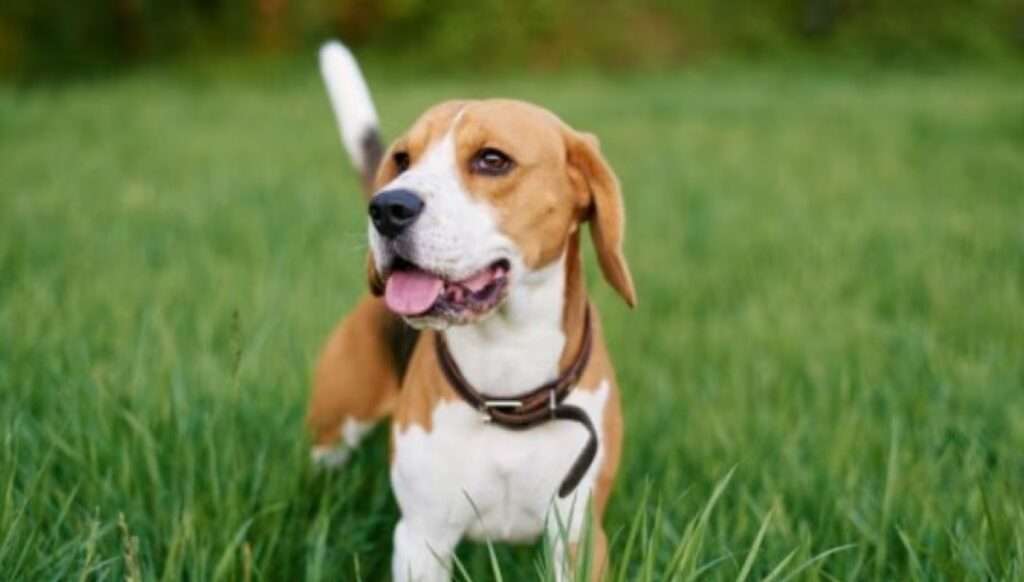
Introduction
If you’re a dog owner, you’ve likely witnessed your dog munching on a patch of grass in the yard or during a walk in the park. It’s a common and somewhat puzzling behavior among our dogs. Why do dogs eat grass, and is it a cause for concern? In this comprehensive blog post, we’ll delve into the intriguing world of dogs and their penchant for grass consumption. By the time you finish reading, you’ll have a better understanding of why dogs eat grass, this fascinating dog behavior, and whether you should worry about it.
The Omnivorous Canine
To understand why dogs eat grass, we need to start with their dietary history. While dogs are classified as carnivores, they are not strict meat-eaters like cats. Dogs are more accurately described as omnivores, meaning they can consume a variety of foods, including both plant and animal matter. This omnivorous nature dates back to their wild ancestors who scavenged for whatever they could find, including fruits, vegetables, and, yes, grass.
Nutritional Benefits of Grass
- A Source of Fiber: One reason dogs eat grass is for its dietary fiber content. Grass is rich in fiber, which can aid digestion and help with bowel regularity. If a dog is experiencing an upset stomach, they may instinctively turn to grass to help alleviate their discomfort.
- Inducing Vomiting: Grass can also act as a natural emetic, which means it can help a dog induce vomiting. When a dog feels unwell or has ingested something that doesn’t agree with them, they might eat grass to trigger vomiting and expel the irritants from their stomach.
- Nutrient Intake: In some cases, dogs may be seeking specific nutrients found in grass, such as folic acid or other essential vitamins and minerals. This is particularly true for dogs with nutritional deficiencies.
Behavioral and Psychological Reasons
- Boredom and Stress: Dogs, like humans, can experience stress or boredom. Chewing on grass can serve as a form of entertainment or stress relief for some dogs. It’s similar to how humans might chew on a pen or their nails when feeling anxious or fidgety.
- Instinctive Behavior: Eating grass may be an instinctive behavior that has been passed down through generations of dogs. Just as some wild canines might have consumed plants in their diet, domestic dogs may have retained this instinct as part of their genetic makeup.
Medical Considerations
While grass-eating is generally harmless, there are instances where it can be a cause for concern. If your dog is eating an excessive amount of grass, it may lead to issues such as:
- Gastrointestinal Irritation: In some cases, grass can be irritating to a dog’s stomach or digestive tract, causing discomfort, nausea, or diarrhea.
- Pesticides and Chemicals: Grass that has been treated with pesticides or chemicals can be harmful to dogs if ingested. Make sure to keep your dog away from chemically treated lawns.
- Foreign Objects: Sometimes, dogs may ingest foreign objects along with the grass, such as small rocks or sticks, which can lead to digestive blockages.
If you notice your dog is eating grass excessively or experiencing negative side effects, consult your veterinarian to rule out any underlying health issues.
should i let my dog keep eating grass
While it is a common sight to see dogs munching on grass, it can be concerning for pet owners. There are several reasons why dogs eat grass, including boredom, seeking fiber, or trying to relieve an upset stomach. In most cases, occasional grass nibbling is harmless. However, it is crucial to ensure that the grass is free of herbicides, pesticides, or fertilizers, as these can be toxic to dogs. If your dog is persistently eating grass or showing signs of gastrointestinal distress, consult your veterinarian to rule out any underlying medical conditions.
How to Manage Grass-Eating
If you’re concerned about your dog’s grass-eating habits, there are several steps you can take to manage this behavior:
- Ensure a Balanced Diet: Make sure your dog’s regular diet is well-balanced and nutritionally complete to reduce the likelihood of nutrient deficiencies.
- Offer Alternative Chewing Options: Provide your dog with safe and appropriate chew toys or treats to redirect their desire to chew.
- Monitor Their Environment: Ensure that your dog doesn’t have access to chemically treated grass or dangerous foreign objects when they’re outside.
- Consult Your Veterinarian: If the behavior continues unabated or if your dog is experiencing health issues, seek advice from your veterinarian.
Conclusion
In conclusion, the question of why do dogs eat grass is a complex one with no single answer. Dogs may engage in grass-eating for a variety of reasons, including seeking nutrients, aiding digestion, or simply out of habit. In most cases, grass consumption is a harmless behavior. However, it’s essential to monitor your dog’s habits and consult with a veterinarian if you have concerns about their health.
Understanding your dog’s individual needs and preferences is key to ensuring their overall well-being. While grass-eating may remain a mild mystery, your love and care for your furry companion will always be a constant source of support and happiness.

Dedicated and experienced pet-related content writer with a passion for animals and a proven track record of creating engaging and informative content. Skilled in researching, writing, and editing articles that educate and inspire pet owners. Strong knowledge of animal behavior, health, and care, combined with a commitment to delivering high-quality content that resonates with audiences. Seeking to leverage writing skills and passion for pets to contribute to a dynamic and mission-driven team.
